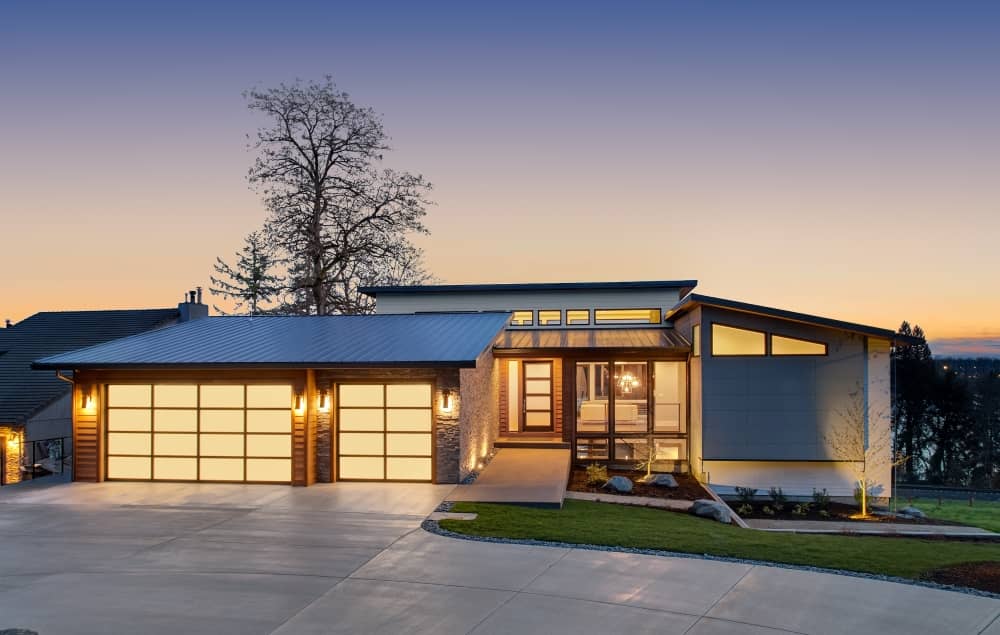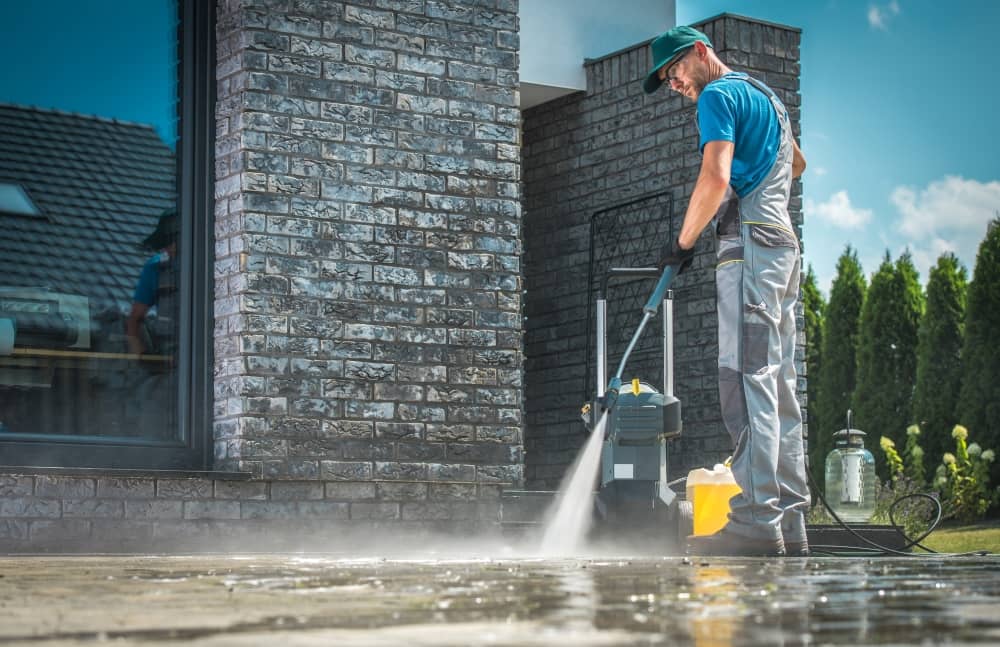Concrete is a versatile material that boasts durability and a long lifespan. That’s why it’s used for foundations and busy areas like living spaces and pathways. Concrete is so robust that it is one of the top options for outdoor driveways. However, it is not indestructible. Along with regular maintenance (which is not much), you should also apply a protective coating.
Sealants are available in different varieties, including:
- Water-based acrylic
- Solvent-based sealant
- Penetrating sealant
- Silicone sealer
- Silicate sealer
- Polyurethane sealer
Typically, you choose the product depending on the location. Certain sealants have unique attributes and may behave unexpectedly if you’re not careful. Researching and deciding on the sealer to use can be overwhelming to do on your own. Whilst you can look up product recommendations and instructions on how to seal concrete, having a professional assess your space to determine which sealant will provide the best outcome.
Do You Have to Seal Concrete Driveways?
The quick answer to the question above is “yes.” Unfortunately, many people, especially homeowners, assume that concrete is tough enough to handle abuse. Therefore, it will not require any extra treatment. Wrong! Sealing concrete offers numerous benefits, from maintaining the material’s structural integrity to preserving its aesthetics.
Here are five reasons why you should add sealing your concrete to your driveway’s maintenance process:
1. Improved Appearance
Let’s admit it. There’s nothing special about concrete’s appearance. It’s just grey and boring (unless we’re talking about decorative concrete). Right after it is poured, it looks rough. As time passes, it will become discoloured. Concrete driveways fade quickly because they are often busy and tolerate more abuse compared to living spaces and kitchens.
But that old, dingy surface can easily be fixed by applying a sealer. Furthermore, it enhances the overall look of the concrete, giving it a smoother, more polished, and better-preserved colour.
2. Kerb Appeal
Your driveway is one of the first things people see, and naturally, you want to make sure it looks great. A well-maintained, sealed concrete driveway helps boost your kerb appeal. Sealers are colourless and transparent, so you don’t need to worry if you have decorative concrete. Therefore, they will not affect the concrete’s hue, design, and pattern. What’s more, sealing the driveway prevents dirt and grime from building up, so the surface looks clean and almost brand new.
Sealing concrete also helps prevent permanent staining, which can easily happen in driveways where oil spills and other disasters can take place. You don’t have to worry about staining from plant material, such as leaves, berries, or flowers, that may fall on the surface.
3. Low Maintenance
On its own, concrete is an easy-to-clean material. However, your job becomes so much easier if the surface is sealed. It is self-cleaning, particularly when it rains, as water “sweeps away” dirt. Grime build-up, on the other hand, is difficult to remove but can still be sprayed away without much effort. The surface is almost stain-resistant and impenetrable, especially if you regularly seal the driveway as recommended.
4. Increased Durability
Concrete has a long lifespan but cannot last without your help. Sealing is one crucial step that will help make sure the building material stands the test of time. Unsealed concrete driveways are prone to damage due to several factors, including:
- Alkali Aggregate Reaction (AAR): Aggregates are generally chemically inert, but some expand and crack if they come in contact with alkali hydroxides in concrete. There are a few ways to avoid such a reaction, including using low-cement concrete and sealing properly.
- Carbonation: Concrete contains hydrated calcium silicate and calcium hydroxide. These two chemicals can react chemically with carbon dioxide in the air. This reaction is called carbonation, which is one of the leading causes of concrete deterioration. You can lessen this interaction by sealing concrete regularly.
- Delamination: Concrete delamination separates the paste layer at the top of the material, releasing it from the slab body. It is often an issue with trowelled concrete, mainly occurring during early spring or late autumn as the material reacts to the rising daytime temperatures. Nevertheless, it can happen anytime due to weather unpredictability, concrete characteristics, and finishing practices utilised by the concrete installer. Delamination causes concrete to be brittle, which you can prevent by simply sealing the surface.
- Weather Disintegration: This issue is characterised by surface corrosion. It can be caused by several things, including freezing and thawing, poor construction, and chemical attack. It’s impossible to protect concrete from freeze-thaw cycles. Still, weathering resistance can be improved easily with the help of a professional and regularly sealing the concrete driveway.
Since driveways can be exposed to the elements and are subject to everyday foot and vehicle traffic, concrete can deteriorate quickly. Most issues involving the strength, durability, and longevity of concrete can be solved by applying a protective coating.
5. Environmentally Friendly
Sealing concrete driveways is a straightforward task that you may view as merely protecting your investment. In reality, it does wonders for your surroundings, too. And we’re not just talking about how your property looks.
Concrete walls brave all kinds of weather, but water is likely to run off rather than pool. That’s why sealing is typically only required on horizontal surfaces. Sealed concrete driveway flooring prevents harmful pollutants and chemicals from seeping into the ground. Mould and bacteria will not fester in your concrete, which also protects the water supply from contamination.
Another significant benefit is that sealing can help prevent concrete weathering and deterioration, which leads to preserving our natural resources. You can take it further by choosing an eco-friendly sealant.
When to Seal and Reseal Concrete Driveways
Concrete sealing should be performed as soon as the material has finished curing. Most professionals agree with this practice, but the disagreement starts with the regularity of resealing. It is difficult to determine the precise window between concrete resealing but is generally dependent on weather, wear and tear slab age, and the initial sealant used. For an accurate answer, it’s best to have a professional evaluate your space, such as non-VOC sealers.
Your concrete driveway directly affects the overall appearance of your property. It all starts with quality decorative concrete and installation. Contact us for a concrete driveway that looks and performs beyond expectations for years.








